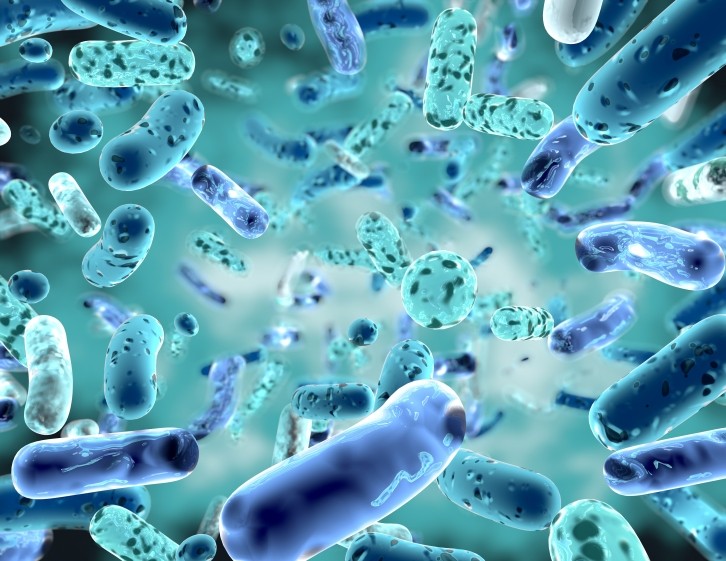BioActor study supports microbial benefits of MicrobiomeX

A new randomised, double-blind, placebo controlled parallel study performed by scientists at Maastricht University, the department of Gastro-enterology of Maastricht University Medical Center and the ingredient manufacturer BioActor, suggests the supplier's ingredient MicrobiomeX can improve short-chain fatty acid (SCFA) profiles in the intestine.
The research concludes that 12 weeks of daily supplementation leads to a significant shift in the SCFA profile (p=0.022) towards butyrate, as well as a reduction in faecal calprotectin levels, a marker of gut inflammation.
Furthermore, an in-vitro study in the TIM2 model, where faecal samples from volunteers were tested, also showed a strong increase in butyrate production.
The authors say these new clinical and pre-clinical results highlight MicrobiomeX’s potential to support intestinal microbiota of subjects with features of metabolic syndrome.
"Together, these results suggest that citrus extract intake may have a positive effect on intestinal metabolic responses and through this, on host health in subjects with features of metabolic syndrome," the report states.
"Further research is needed to provide more insight into the potential underlying mechanisms and to study effects on clinical parameters."
What we know
Citrus sinensis (sweet orange) and Citrus paradisi (grapefruit)are naturally rich in flavonoids, known for their anti-inflammatory and antiviral properties.
Data from previous studies suggest that flavonoids present in citrus fruits, mainly hesperidin and naringin, can interact with the intestinal microbiota and can thereby beneficially affect factors related to metabolic and intestinal health.
Intestinal microbes break down citrus flavonoids into smaller bioactive compounds that can be absorbed, while hesperidin and naringin can modulate the composition of the microbiota and affect SCFA production.
MicrobiomeX already showed promising potential to reduce markers of gut inflammation and increase SCFAs in previous in-vitro and ex-vivo studies conducted with this ingredient.
But until now, data about the effects of citrus flavonoids on intestinal responses in metabolic health of human subjects and in particular those with metabolic disturbances, have been scarce.
This study hypothesized that the flavonoids found in citrus fruits have the potential to interact with the intestinal microbiota and their metabolite production, thereby exerting positive effects on factors related to metabolic and intestinal health.
Therefore, the objective was to investigate the effect of MicrobiomeX supplementation on intestinal metabolic responses in subjects with features of MetS.
The researchers studied these parameters in faecal samples of human subjects and in an in-vitro system named 'TIM-2' - a computer-controlled model in an anaerobic environment that replicates the appropriate conditions for microbial growth in the human colon and is able to measure microbiota composition and SCFA production.
The study
Fifty adult subjects (male and female, aged 18–65 y) with at least two features of metabolic syndrome took part in the study. Features of MetS include: increased waist circumference (≥102 cm (males) or ≥88 cm (females)), increased serum triglycerides (≥1.7 mmol/L), reduced blood HDL-cholesterol (<1.0 mmol/L (males) or <1.3 mmol/L (females)), elevated blood pressure (systolic ≥ 130 mmHg and/or diastolic ≥ 85 mmHg), and elevated fasting glucose (≥6.1 mmol/L).
Participants ingested 500mg MicrobiomeX (standardised hesperidin-2S >80% and naringin >4%) or placebo daily for 12 weeks. Additionally, seven volunteers provided faecal samples that were introduced into a TIM-2 system for further analysis.
The results suggest a significant shift in the SCFA profile towards more butyrate (p=0.022) in the MicrobiomeX group after the 12-week supplementation period. An increase in SCFA production was also found in the TIM-2 model, which researchers conclude was mainly due to an increased production of butyrate, acetate and valerate.
Additionally, in the MicrobiomeX group, a trend in calprotectin reduction was observed, which is a marker of gut inflammation.
The researchers conclude both the in vivo and in vitro data suggest the benefits of MicrobiomeX on gut health, specifically the increased butyrate production and improved SCFA profile.
Source: MDPI Foods
https://doi.org/10.3390/foods12183413
"Citrus Extract High in Flavonoids Beneficially Alters Intestinal Metabolic Responses in Subjects with Features of Metabolic Syndrome"
Authors: Maurer Sost, M.; Stevens, Y.; Salden, B.; Troost, F.; Masclee, A.; Venema, K.




















